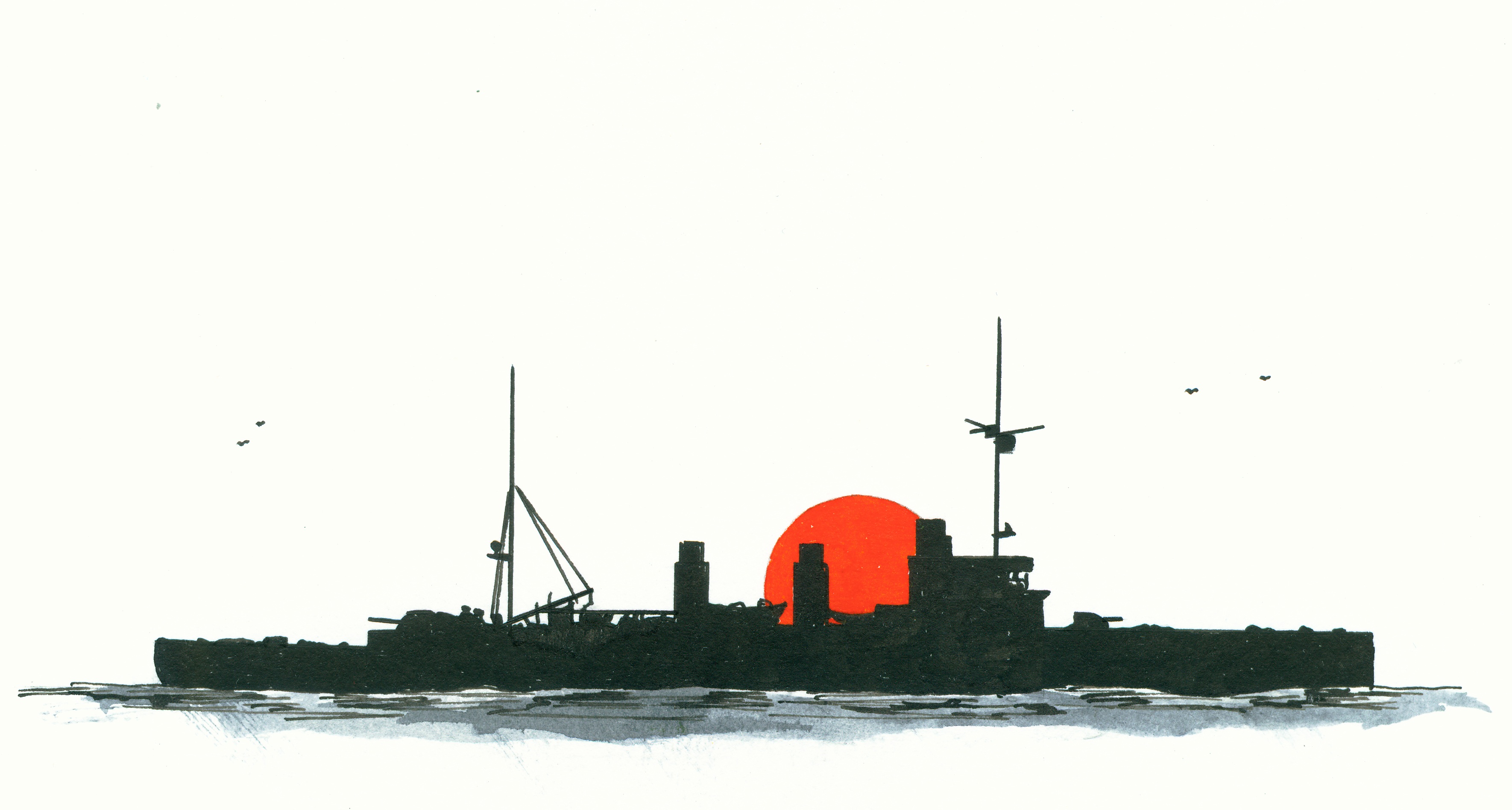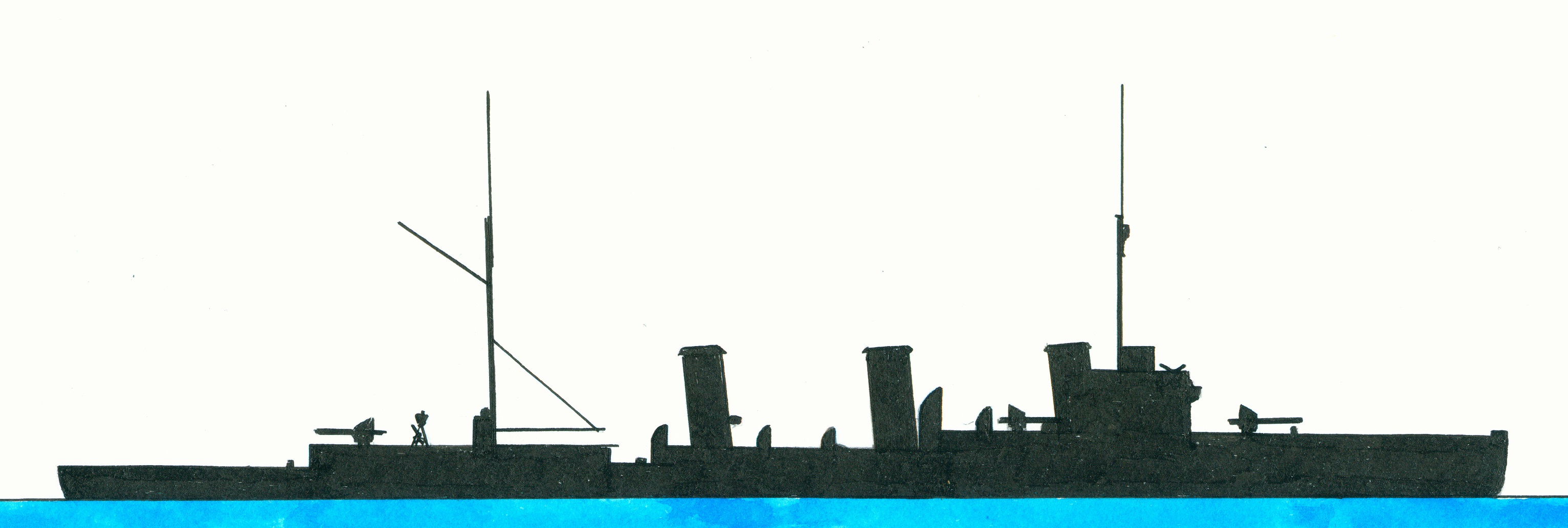Italian Bari former German Pillau and Russian Maraviev Amursky y
Svetlana-class
Design process for this class started in 1907 resulting in begin 1912 in a design for a cruiser with a displacement of 4.100-5.100 tons with a speed of 30 knots and an armament of 12-13cm/5,1” cal 55 Pattern 1913 guns. Wile the navy demanded more was concluded that the ships should be too small resulting in November 1912 in a displacement of 6.700 tons. When the shipyards agreed to lower the building costs was as compensation the speed limited to 29,5 knots. Part of the Svetlana-class consisting of the Svetlana, Admiral Greig, Admiral Butakov and Admiral Spiridov, preceded by the Muraviev Amurski-class (1) and succeeded by the Admiral Nakhimov-class.(2)
General technical class details.
Dimensions 158,4 (over all) x 15,3 x 5,56 metres or 519.8 x 50.2 x 18.3 feet and a standard displacement of 6.860 tons. The machinery consisted of 4 geared Curtis-AEG-Vulkan steam turbines and 13 Yarrow boilers supplying via 4 shafts 50.000 shp allowing a speed of 29,5 knots. Fuel oil bunker capacity 1.186 tons. Crew numbered. The armament consisted of 15x1-13cm/5.1” Pattern 1913 guns, 4x1-6,33cm/2.5” anti aircraft guns and 2x1-45cm/17.7” torpedo tubes. Able to take 10 mines with them. The armour consisted of a 2,5-7,6cm/0.98-2.99” thick belt over the complete hull length stretching from the lower deck to 0,91 metres/3” below the water line. Between the lower and main decks was 2,5cm/0.08” armour protection. All decks had a thickness of 2cm/0.79”. Funnel uptakes and the gun shields had an armour protection of 2,5cm thick armour, the conning tower by 7,6cm/3”.
Notes
1. The Maraviev Amurskyy and the Admiral Nevelskoy were built in Germany but confiscated when the war broke out and commissioned in the German navy as the Pillau-class cruisers SMS Pillau (since 1920 the Italian Bari) and the Elbing (scuttled at the Battle of Jutland 1 June 1916).
2. Consisting of the Admiral Nakhimov, Admiral Kornilov, Admiral Istomin and Admiral Lazarev.


